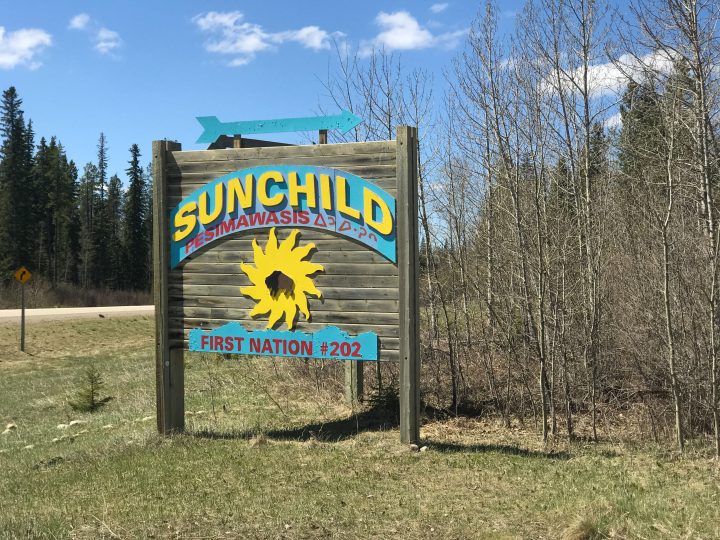Two neighbouring Alberta First Nations — O’Chiese and Sunchild — held an official signing ceremony on Wednesday to enact bylaws to evict drug dealers from the communities.

The two chiefs signed Residency and Trespass Bylaws, which give the First Nations power to drive out illicit drug use.
“We are battling an epidemic of drug and alcohol abuse in our communities,” said O’Chiese First Nation Chief Douglas Beaverbones.
“Both Sunchild and O’Chiese Nations are united and we stand together. This is exactly what we need to ensure our residents are safe.”
In a joint news release, the First Nations said both O’Chiese and Sunchild received “overwhelming support for the bylaws from their communities after several public consultations.”
Officials said penalties and appeals will be handled by a sanctioned body made up of seven community members.
“The First Nations are working collaboratively with RCMP and all aspects of the criminal justice system,” the news release said.

READ MORE: Drug dealers could face banishment from Siksika reserve

Get breaking National news
Last May, Siksika Nation chief and council banished three non-Nation members from the community in southern Alberta. Officials on council said the trio was known to be involved in possessing and trafficking drugs. Councillors said drugs were taking more and more lives and they didn’t want community members exposed to any more risks.
“We couldn’t hold off any longer. We usually wait for bylaws and RCMP to charge the people, but we decided, ‘You know what? Let’s just do it,’” Siksika Councillor Buck Breaker said.
In 2012, Maskwacis — which was then known as Hobbema — voted to give community leaders the power to evict suspected gang members. The 479-369 vote meant any 25 residents of the 7,000-member Samson Cree band in Hobbema could apply to have someone legally removed from the First Nation.
A spokesperson for the federal government’s Indigenous Services department said the Indian Act prescribes bylaw-making authorities to band councils.
Sections of the act “prescribe specific authorities for several subject matters such as removal of trespassers, law, order, taxation, business licensing, health and intoxicants,” an email from spokesperson Martine Stevens said.
“As of Dec. 16, 2014, the Indian Act Amendment and Replacement Act amended and repealed various sections of the Indian Act, including provisions addressing the enactment and coming into force of band bylaws. The act is consistent with the government’s approach of taking concrete, but incremental, steps to create the conditions for healthier, more self-sufficient First Nation communities.
“The act removes the oversight and disallowance powers of the minister that existed under section 82 of the Indian Act.
“As such, First Nations are no longer required to forward copies to the minister of bylaws made under section 81(1) and 85.1 of the Indian Act, within four days of their enactment, for review and for certification, and the minister is no longer able to disallow these by-laws.
“Only a court of competent jurisdiction would be in a position to undertake such an examination.
“The government of Canada acknowledges the interests of Indigenous communities and governments in establishing governance models and rules that meet their unique needs and recognizes that Indigenous regulatory authority can derive from a number of sources, including rights recognized and affirmed in the Constitution Act, 1982, historic and modern treaties and land claim agreements, self-government agreements and federal legislation such as the Indian Act. First Nations can determine the types of restrictions they. Support for the self-determination of Indigenous Peoples is a key objective of the Government of Canada and this includes respecting the right of a First Nation to bring into force a bylaw it has chosen to enact.”
O’Chiese First Nation is located about 52 kilometres northwest of Rocky Mountain House and has approximately 1,500 members.
Sunchild First Nation is about 60 kilometres northwest of Rocky Mountain House and has approximately 1,440 members.
- Calgary city councillors set to receive, discuss report on troubled watermain
- Nicolaides petition 10K signatures short as 1st deadline looms in flurry of Alberta recalls
- Alberta RCMP issue nearly 1,000 tickets to drivers over the holidays
- Calgary woman charged after tossing traffic cone off downtown apartment balcony








Comments